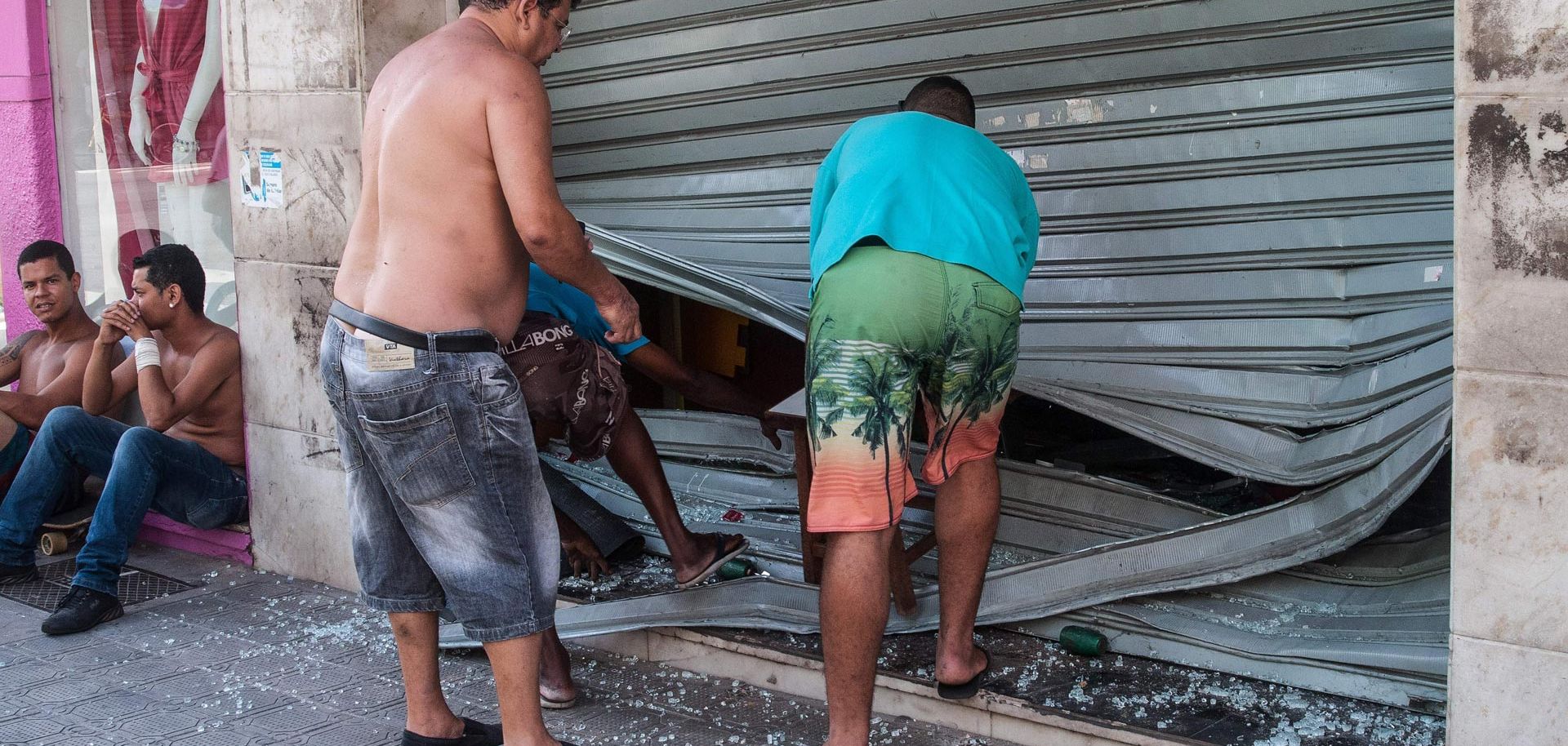ASSESSMENTS
A Striking Problem for Brazil's Security
Feb 16, 2017 | 09:00 GMT

(VINICIUS MORAES/AFP/Getty Images)
Summary
Police officers are tasked with enforcing the law, but that doesn't always keep them from breaking or skirting it. In Brazil, for instance, a prohibition on police strikes has not stopped police officers in Espirito Santo state from vacating their duties to demand higher wages, which are some of the lowest among Brazil's police forces. The rule has forced them to get creative, though. Instead of the officers themselves, their wives and girlfriends are leading the charge, physically blocking the entrances to police stations across the state to keep their spouses and partners from working — and from breaking the law. By Feb. 11, a week after the strike began, 1,743 officers in Espirito Santo had returned to work. But their time off had a profound effect on the state's security: In just seven days, Espirito Santo experienced 147 homicides and a spate of lootings.
The situation stabilized as officers resumed their duties and members of the armed forces deployed to Espirito Santo to patrol the streets. Espirito Santo's government even fired 155 police officers to discourage others from joining the protests. Now, however, the federal government in Brasilia is concerned that the strike will spread to other states. Relatives of police officers in Rio de Janeiro state began barricading police stations on Feb. 10, days after the state government announced that it would increase wages. Though the protest has not significantly impeded police operations in Rio de Janeiro, Brazilian President Michel Temer decided to send 9,000 members of the armed forces to the state to help police patrol it. And given the country's economic straits, the strikes may keep coming, despite the government's best efforts to stop them.
Subscribe Now
SubscribeAlready have an account?
